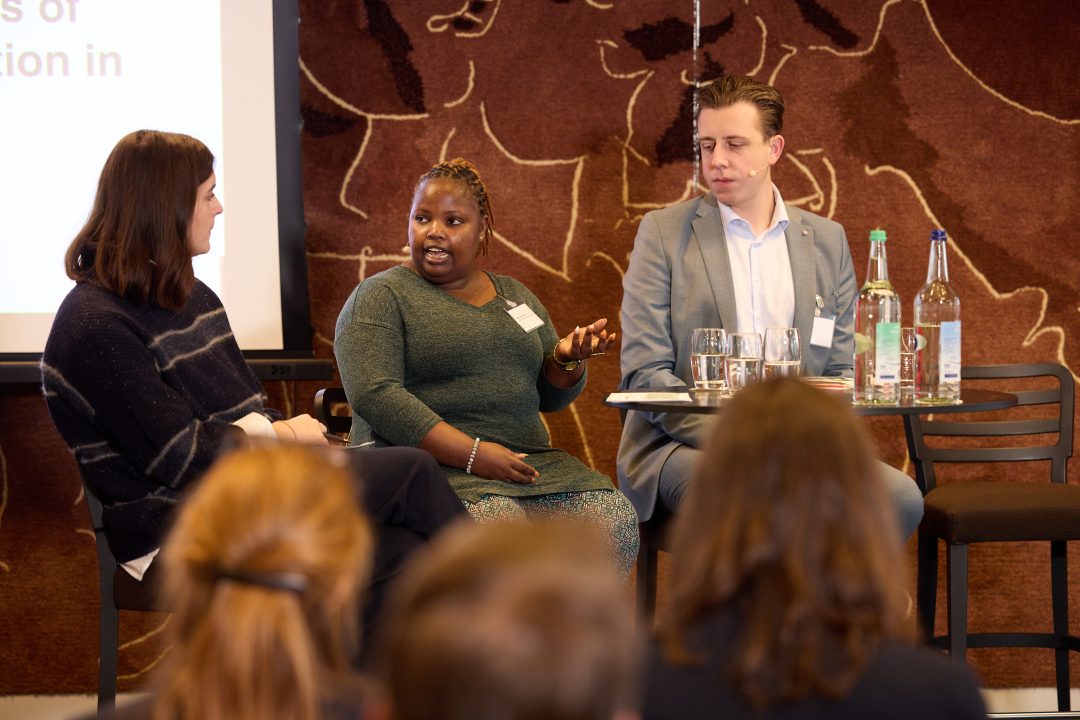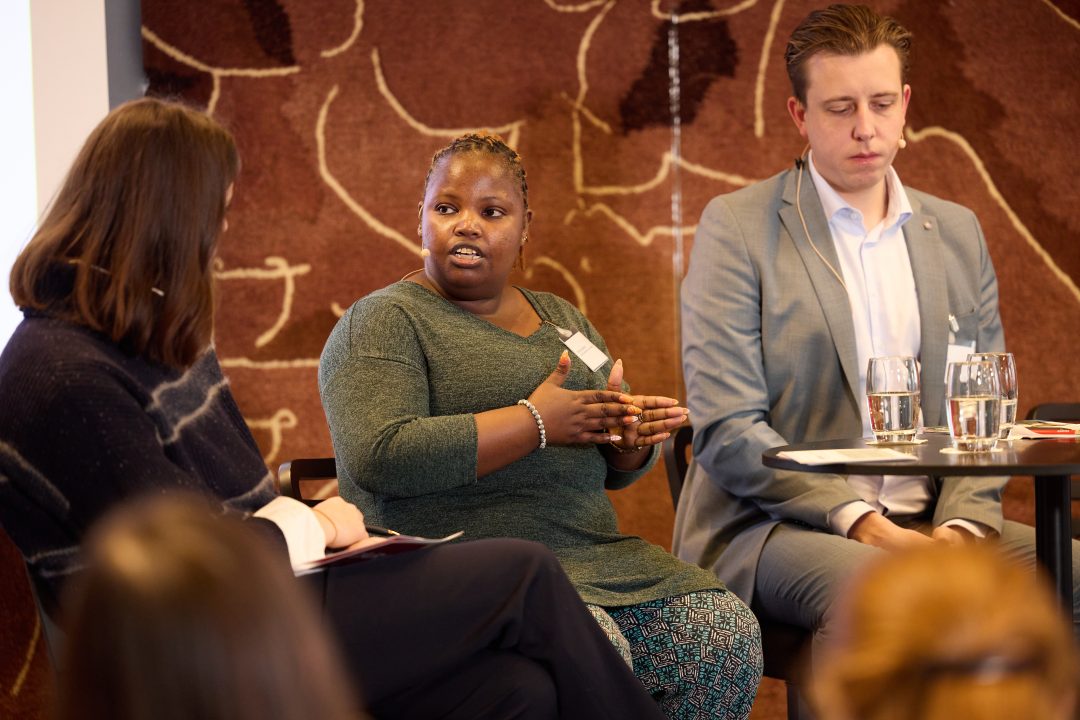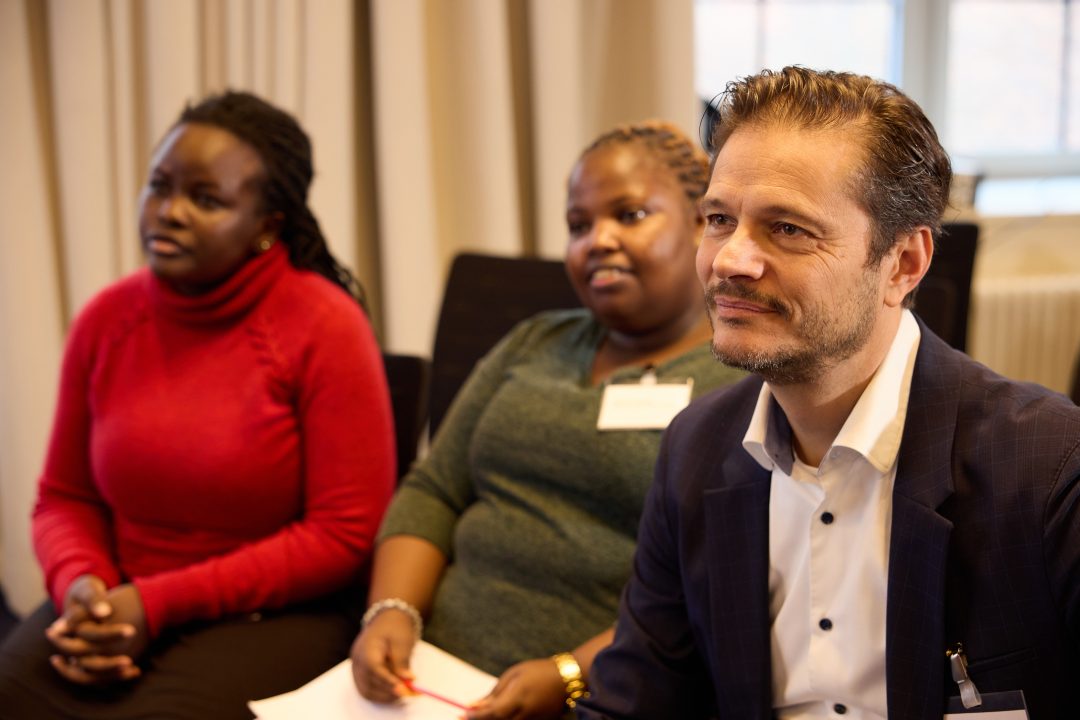This month, I had the privilege of attending the Caritas Switzerland IC Symposium on “Balancing Climate Protection with Poverty Reduction Interventions.” Set against the stunning backdrop of Switzerland, the event gathered changemakers, experts, and advocates dedicated to addressing some of the most urgent global challenges. It was an inspiring opportunity to engage in meaningful dialogue and deepen my understanding of the connection between climate action and poverty reduction.
The symposium offered a valuable platform for reflecting on the complexities of development cooperation, especially in the context of a rapidly changing climate. The main takeaway? Locally-led development is essential. This approach places affected communities at the forefront of decision-making, ensuring that solutions are tailored to their unique circumstances. This message resonated with me, particularly in light of my work in Kenya, where rural communities are disproportionately impacted by climate change yet possess a wealth of local knowledge and resilience.
Key Takeaways

1. No One-Size-Fits-All Solutions
One of the standout themes at the symposium was the significance of nuanced, context-specific solutions. Each community has unique needs and challenges that require strategies aligned with their cultural, social, and environmental realities. This perspective challenges traditional top-down approaches, which often fail to address the root causes of poverty and environmental degradation.
For example, in Kenya, sustainable farming practices like agroforestry have been successful because they combine indigenous knowledge with modern techniques. Similarly, renewable energy projects have thrived when local communities were consulted from the beginning, ensuring that the projects aligned with their priorities.
2. Collaboration Is Crucial
One key takeaway from the symposium was the importance of partnerships. Addressing climate change and poverty requires collaboration across various sectors. Governments, civil society, private entities, and local communities all play vital roles in this effort. The discussions highlighted the power of collective action and emphasized the need to break down silos to create a lasting impact.
I was particularly inspired by the stories shared by fellow participants about innovative, community-driven projects from different parts of the world. These ranged from climate-resilient infrastructure to educational initiatives that empower women and youth to become advocates for climate action.
3. Balancing Urgency with Equity
Climate action is urgent, but it must also be equitable. The voices of marginalized communities, who are often the most affected by climate change, must not be overlooked in the rush to implement solutions. The symposium reminded me that true sustainability cannot be achieved without justice.
This has reinforced my commitment to advocating for inclusive climate solutions, particularly in rural Kenya, where access to resources and opportunities is often limited.

Building on the Momentum
The Caritas Switzerland IC Symposium was not just an event; it was the beginning of a broader conversation. I am excited about the upcoming collaborative initiative that Caritas Switzerland announced, which aims to build on the ideas and partnerships forged during the symposium. Initiatives like these are vital to sustaining momentum and ensuring that impactful ideas are translated into action.
I am also grateful for the resources shared during the event, including materials that allow us to revisit and reflect on the discussions. For those interested, I highly recommend exploring these materials on the symposium event page.
Gratitude and Looking Ahead
I extend my heartfelt thanks to the entire team at Caritas Switzerland for organizing such a well-structured and impactful event. Your dedication to fostering meaningful dialogue and actionable outcomes is commendable.
Attending this symposium has not only enriched my perspective but also reinforced the importance of my work advocating for climate justice and sustainable development. The experience has inspired me to continue advocating for locally led, inclusive solutions that empower communities and protect our planet.
As I return to my work in Kenya, I carry the insights and connections from the symposium. I look forward to future collaborations and continuing this journey of shared learning and action.

A Call to Action
As we reflect on the conversations from the symposium, let us remember that balancing climate protection with poverty reduction is not just a challenge; it is an opportunity to rethink how we approach development. By centring the voices of those most affected and fostering collaboration, we can create solutions that are both equitable and sustainable.
Here’s to building a world where no one is left behind.


Thank for sharing what sounds like a remarkable symposium. Let’s hope that some of its goals can be implemented.
Thanks, sure the implememntations are thekey part.
I have lost touch with your blog and wish I could have met you in person in Switzerland!
Incase I get to come back, I will get in touch.